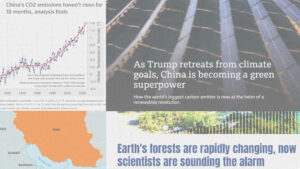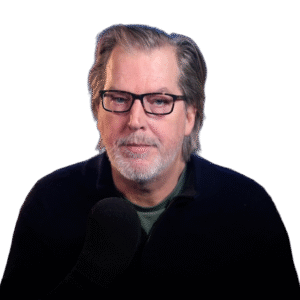
In this week’s Frankly, (coincidentally released the day after Earth Overshoot Day), Nate breaks down seven factors contributing to humanity’s increasing overshoot – which is defined as the point at which species’ use of ecological resources and services exceeds what Earth can regenerate in a given time period – as well as some things that might engender a retreat from current overshoot levels.
For the first time in Earth’s history, a species is able to access, extract, consume, and inject waste into the entire biosphere – testing the limits of our planet’s stability and capacity to provide. The human system is based on the foundation of a huge energy surplus in the form of fossil fuels with the (inaccurate) worldview of limitless resources. As such, all of our institutions, lifestyles, and expectations require growth, even as we increasingly understand the damage it does to the planet.
How did humanity end up in the unique predicament of expanding its consumption beyond the limits of the most bountiful planet that we know of? Is it possible that the primary factors getting in the way of a more sustainable human future are rooted in our social and cultural structures, rather than our technologies? What opportunities still lie ahead of us to mitigate the damage we’ve already done and find a new ecological equilibrium?
Support The Institute for the Study of Energy and Our Future
In French, we have a motto that says that a simple drawing is often better than a long explanation. Jean-Marc Jancovici Carbone 4 President
That’s very understandable because with left atmosphere thinking, one of the problems is that you see everything as a series of problems that must have solutions. Iain McGilchrist Neuroscientist and Philosopher
We can’t have hundreds and hundreds of real relationships that are healthy because that requires time and effort and full attention and awareness of being in real relationship and conversation with the other human. Nate Hagens Director of ISEOF
This is the crux of the whole problem. Individual parts of nature are more valuable than the biocomplexity of nature. Thomas Crowther Founder Restor
Show Notes & Links to Learn More
Download transcript01:42 – Overton Window
02:02 – Ecological Overshoot
02:44 – Carrying Capacity
03:53 – The Carbon Pulse
04:10 – Megafauna biomass is 700% what it used to be
04:45 – Money tethered to energy, resources and waste, but our system neglects that
06:19 – People prefer confident, and optimistic people
06:45 – Ecolate
06:50 – Elon Musk believes Earth can support 80 billion humans
08:06 – Hedonic Ratchet
09:25 – Cognitive Dissonance
09:29 – Jared Diamond – Collapse
12:07 – Our world is ~85% run on hydrocarbons
12:41 – Increase in extreme weather events
14:30 – Syntropic technology






